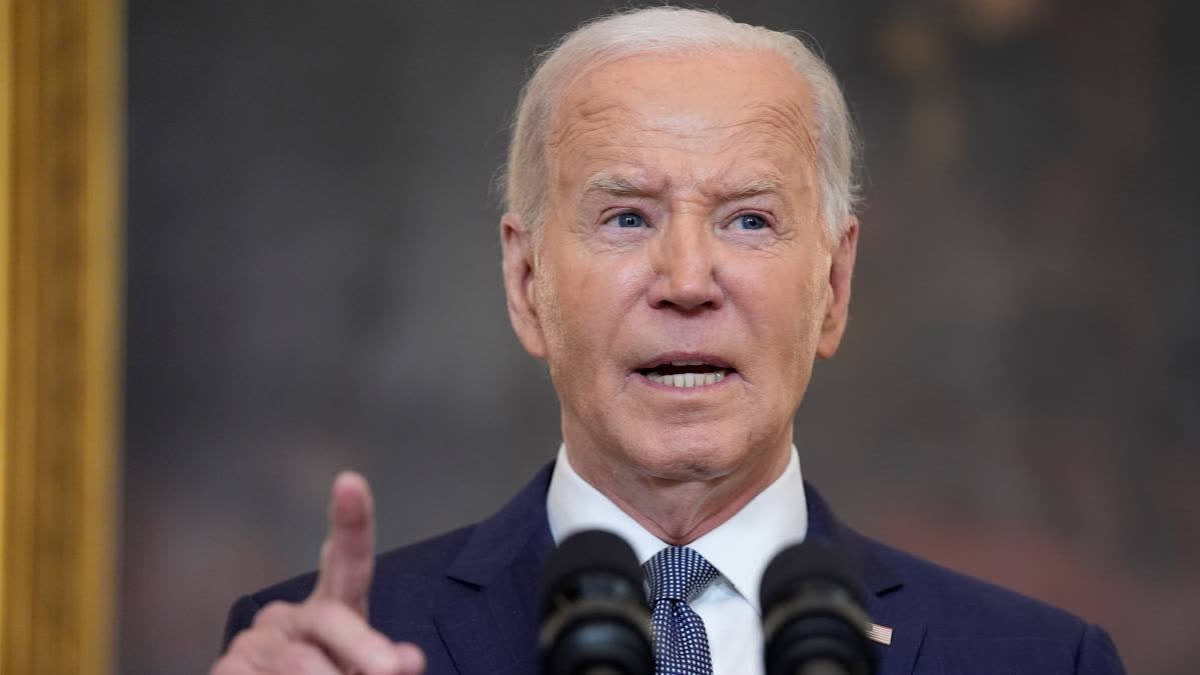Paris:President Joe Biden on Friday for the first time publicly apologised to Ukrainian President Volodymyr Zelenskyy for a monthslong holdup in American military assistance that let Russia make gains on the battlefield. Speaking in Paris, where they both attended ceremonies marking the 80th anniversary of the D-Day landings, Biden told Zelenskyy that he apologised to the Ukrainian people for the weeks of not knowing if more assistance would come while Congress waited six months before sending Biden a USD 61 billion military aid package for Ukraine.
Still, the Democratic president insisted that the American people were standing by Ukraine for the long haul. We're still in. Completely. Thoroughly, he said. The United States is by far Kyiv's biggest supplier of wartime support, and Ukraine is trying to fend off an intense Russian offensive in eastern areas of the country. The push is focused on the Ukrainian border regions of Kharkiv and Donetsk but Ukrainian officials say it could spread as Russia's bigger army seeks to make its advantage tell.
The offensive is seeking to exploit Kyiv's shortages of ammunition and troops along the roughly 1,000-kilometre (620-mile) front line. That shortfall in weaponry came after US military aid was held up in Congress for six months before Biden in April signed the USD 61 billion package into law.
The slow pace of delivery of pledged Western weaponry has long frustrated Zelenskyy, as has Biden's hesitation over supplying more hardware for fear of provoking Russian President Vladimir Putin. That has caused tension in their relationship. The US will send about USD 225 million in military aid to Ukraine, US officials said Thursday. The latest package includes munitions for the High Mobility Artillery Rocket System, or HIMARS, as well as mortar systems and an array of artillery rounds, officials said.
Easing their stance amid Russia's most recent onslaught and with Ukraine's army reeling, some NATO allies including the US said last week they would allow Ukraine to use weapons they deliver to Kyiv to carry out limited attacks inside Russia. That step brought a furious response from the Kremlin, which warned that Europe's biggest conflict since World War II could spin out of control.
